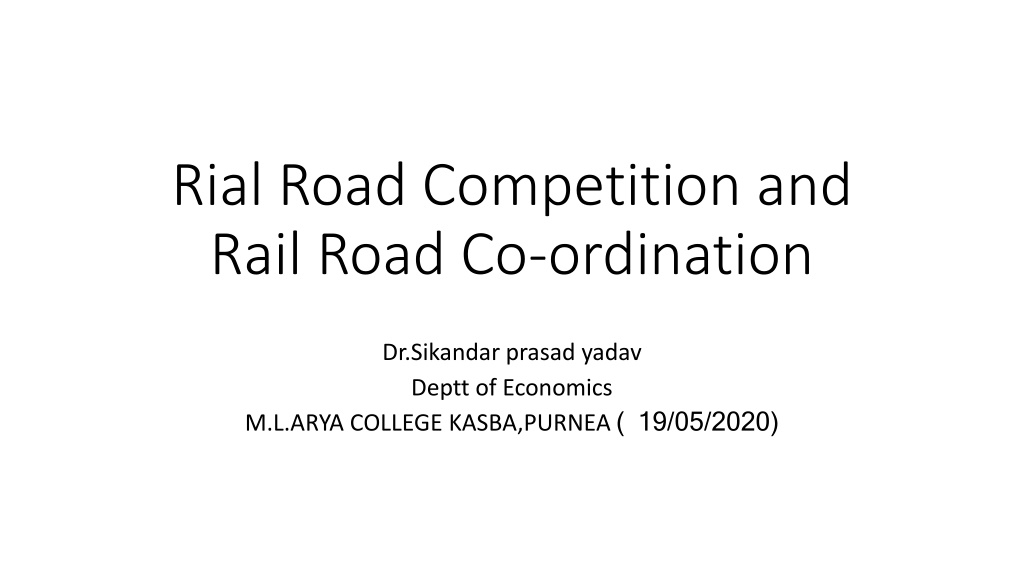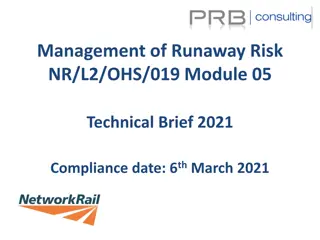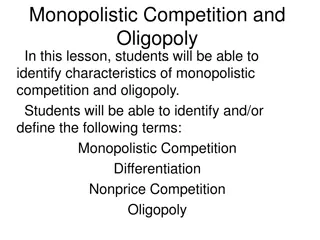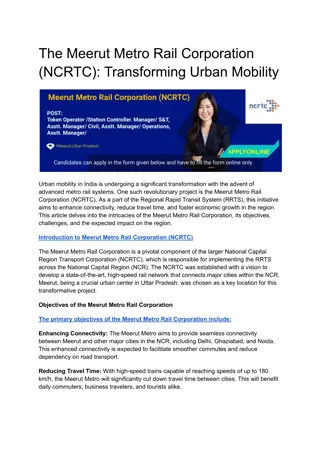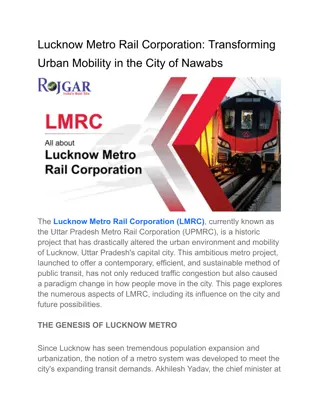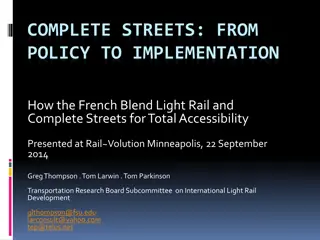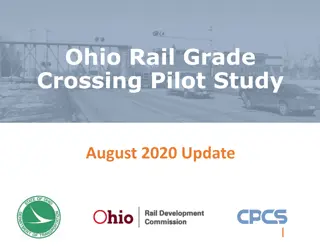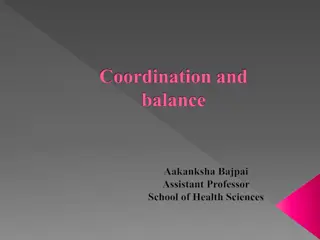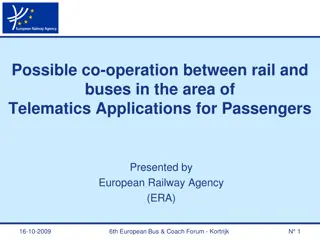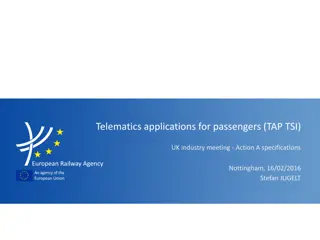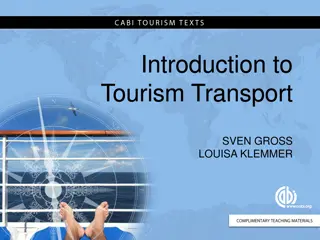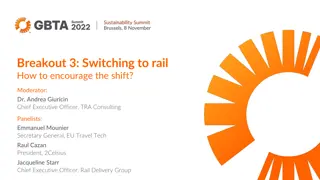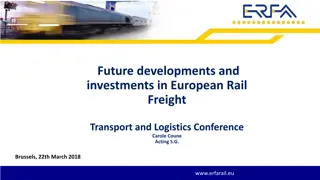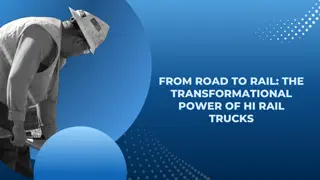Challenges and Solutions in Rail-Road Competition and Co-ordination
Rail and road transport in India are experiencing a competitive landscape, with road transport gaining prominence over railways. This shift poses challenges such as operational costs, efficiency issues, and the need for better co-ordination between the two modes of transport. To address these challenges, proper rail-road co-ordination is essential for balanced growth and optimal utilization of resources. This co-ordination can lead to improved efficiency, reduced wastage, and facilitate the development of new projects. However, it requires strategic planning and collaboration to ensure a harmonious relationship between rail and road transport systems.
- Rail-Road Competition
- Transport Efficiency
- Co-ordination Challenges
- Infrastructure Development
- India
Download Presentation

Please find below an Image/Link to download the presentation.
The content on the website is provided AS IS for your information and personal use only. It may not be sold, licensed, or shared on other websites without obtaining consent from the author. Download presentation by click this link. If you encounter any issues during the download, it is possible that the publisher has removed the file from their server.
E N D
Presentation Transcript
Rial Road Competition and Rail Road Co-ordination Dr.Sikandar prasad yadav Deptt of Economics M.L.ARYA COLLEGE KASBA,PURNEA ( 19/05/2020)
Rail Road Competition and Co-ordination Rail and Road both are important transport. Road transport means transportation of goods and personnel from one place to the other place on road. Rail transport is means of transferring passengers and goods on wheeled vehicles running on rails, which are located on tracks But in India, Railway is facing increasing competition from road transport. As for example, the share of road transport in respect of freight has increased from 11% in 1950-51 to 58% in 1985 -86 and then declined to 40% in 1992.But the share of railway in respect of freight has come down from 89% in 1950-51 to 42% in 1985-86 and then again increased to 60per cent in1992.
Same is also the case in respect of passenger traffic. Thus through evil competition road transport in India is expending its network over rail way transport. Although such competition has enhanced the level of efficiency and productivity but it has also generated various problem in the transportation system. Causes of Rail Road Competition. (1) Flexibility of time of road transport as compared to railways. (2) Facilitating door to door service by road transport when the railway could not provide. (3) Time consuming system of booking and other formalities in railway which the road transport system are not adopting.
(4) Higher operational cost of railways due to increasing expenditure on overheads as compared to lower operational cost of road transport. (5) Increasing involvement of railways in social welfare programmes leading to higher overhead cost as compared to lower overhead cost of road transportation. (6) Increasing facilities of route changing both for passenger and freight traffic under road transport as compared to railways. Need for Rail-Road Co-ordination In order to remove such wasteful competition, there should be proper rail road co ordination in the country, so that one can supplement the other services accordingly. Thus here should be a balanced growth of both two mods of transport.
1 Huge investment in the fixed assets of railways should be utilised optimally for gaining maximum return. 2 Lack of proper co ordination between road and Rail transport leads to the establishment of duel system of competitive transportation leading to huge wastage. 3 Rail Road Co-ordination is an important prerequisite for all round development of the country. 4 Rail Road Co-ordination is very important for the development of new projects such as construction of river, bridge, new railways line etc.
